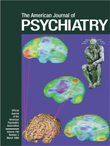This book is the companion text to The Psychiatrist in Court: A Survival Guide, which emphasizes the role of the psychiatrist as a fact witness. As a natural progression for those psychiatrists who are intrigued by the courtroom experience or by the practice of forensic psychiatry, The Psychiatrist as Expert Witness serves as an invaluable guide and resource. The text is an excellent reference for either the novice or seasoned practitioner encountering the ethical, clinical, and practical issues of the expert witness, as well as hazards and pitfalls inherent to this arena.
The first three chapters take psychiatrist-readers on an enlightening journey of discovery, addressing fundamental issues such as whom are they working for, confidentiality/nonconfidentiality, and reasonable medical certainty. The pitfalls of the “hired gun” persona, issues of expertise, bias, and fees, and initial considerations as to how to decide whether to accept or reject a proposed case are succinctly presented in a practical fashion. Dr. Gutheil provides insight and guidance to the expert witness for determining the weight of such complex issues as causation versus connection, the plaintiff’s vulnerability (“thin skull”), previous or preexisting conditions, or the influence of intervening causes on the case being considered.
Chapter 4 provides a treasury of principles and advice concerning the spectrum of cases (suicide, sexual misconduct and boundary issues, third-party claims, breaches of confidentiality, medication issues, and more) that the expert may encounter. Dr. Gutheil skillfully weaves case scenarios into the text to illustrate and accentuate key points. Chapters 5 and 6 guide the expert witness through the legal process, from discovery and deposition to the trial itself. Along the way, insight, recommendations, and pointers are offered, as well as references and suggested readings to enhance the knowledge and skills of the expert witness. Chapters 7–10 present a hands-on, practical discussion derived from what Dr. Gutheil refers to as “received wisdom” and empirical experience. Advice on such diverse subjects as forensic report writing, postreport negotiations, development and marketing of a forensic practice, and commonsense advice for the expert witness on the road is offered in an informal, articulate, and comprehensive style. The Psychiatrist as Expert Witness is a cornerstone text for any psychiatrist considering or actively pursuing a forensic psychiatric practice.

